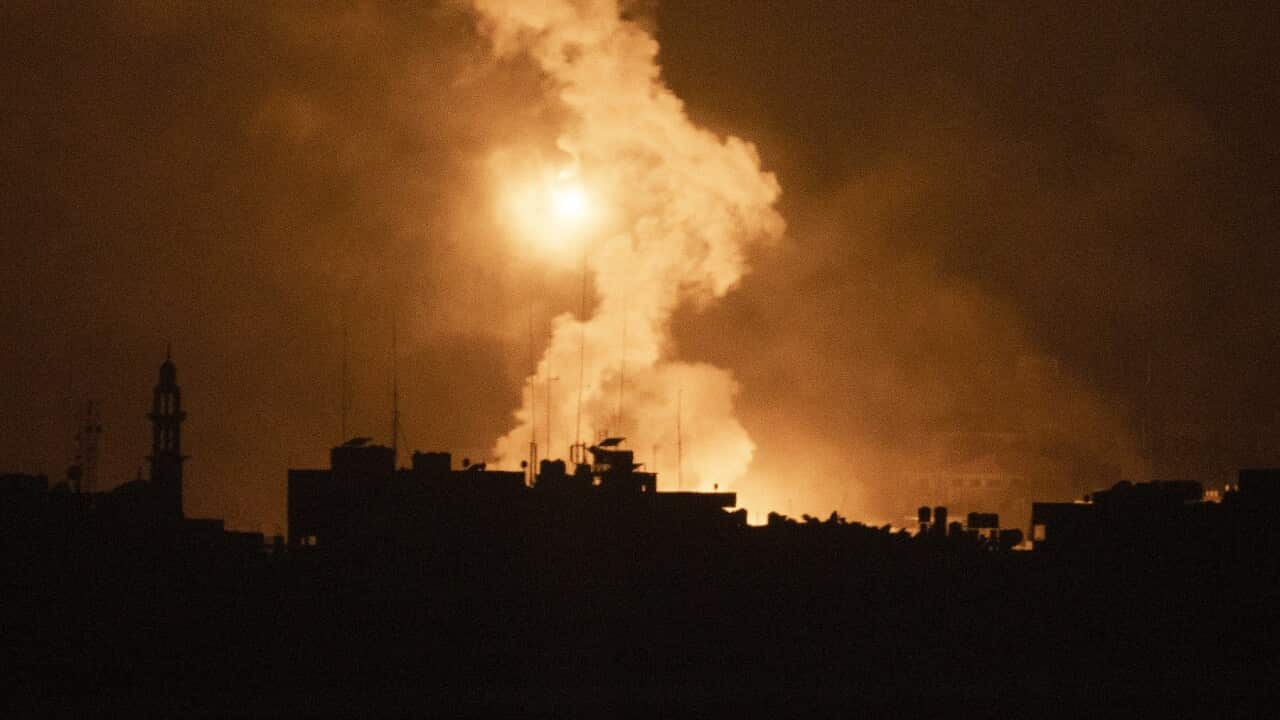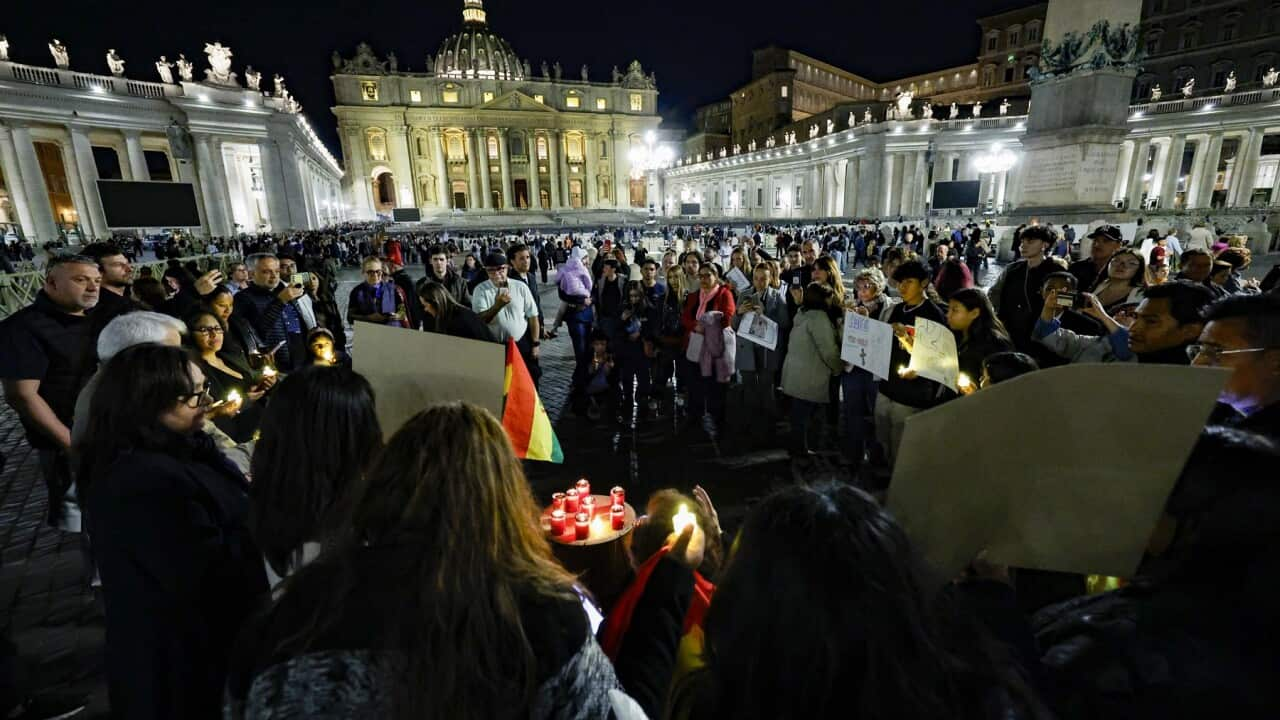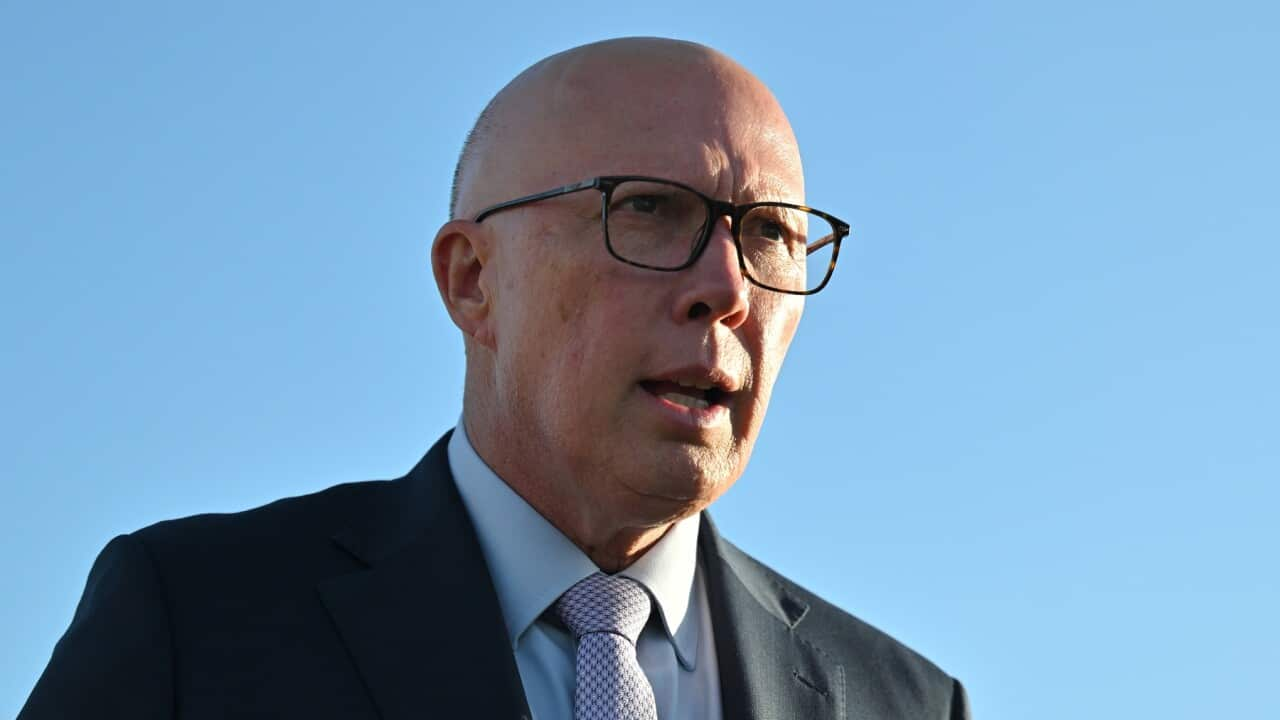TRANSCRIPT
It's been over a month now since Israel launched its campaign to annihilate Hamas.
Prime Minister Benjamin Netanyahu has paid a visit to commanders and soldiers of the Caracal Battalion, at one of the assembly points near the Gaza Strip fence, to emphasise how serious Israel is about its mission.
"This is neither an 'operation' nor a 'round' but a war to the end. It is important to me that you know this. This is not lip service, but from the heart and mind. If we do not finish them, it will come back."
The operation is coming at a high cost.
It's estimated around two thirds of Gaza's population have been made homeless by the relentless Israeli military campaign.
And the Health Ministry in Gaza says more than 11,000 Palestinians, two-thirds of them women and children, have been killed since the war began.
That toll is still rising but Tommaso Della Longa, from the International Red Cross, says it's impossible to collate exact figures.
"We are hearing from Palestine Red Crescent colleagues that there are a number of people missing or a number of people that are under the rubble simply because no-one is able to access to those areas. So it's even difficult to get a proper picture of the scale.”
The situation on the ground is now increasingly desperate.
Gaza's Health Ministry says 32 patients in the Gaza Strip's major hospital, Al-Shifa, have died in the past few days, including three newborn babies, and at least 650 patients are still sheltering inside because of a drastic shortage of supplies and fuel.
United Nations spokeswoman Tamara Alrifai says they are hearing the hospital is not operating at all.
"Al Shifa is an iconic hospital in Gaza. It is always the hospital that continues to function across the wars. Yesterday, the Director-General of the World Health Organisation declared that for the last three days, Al Shifa has not received water and electricity and has stopped operating."
Meanwhile, the fate of many of the hostages taken from Israel by Hamas in the October 7 attack remains unknown.
The United States has urged Israel to avoid targeting hospitals in its Gaza operations, but Israel Defence Force spokesman Rear Admiral Daniel Hagari says Hamas is using medical facilities as a cover.
The IDF has released a video he says shows an underground bunker in a hospital where they allege Hamas has been operating from.
" Underneath the hospital, in the basement, we found a Hamas command and control centre, suicide bomb vests, grenades, AK47 assault rifles, explosive devices, RPGs and other weapons, computers, money, etc. And we also found signs that indicate that Hamas held hostages here. This is currently under our investigation but we also have intelligence that verifies it."
Some of the hostages' families have gathered outside the main UN offices in Jerusalem to demand the world body secures the release of their loved ones, handing over a letter addressed to UN Secretary General Antonio Guterres.
But Hamas says it has made an offer to release some of the hostages.
Al-Qassam Brigade spokesman Abu Ubaida has said in an audio recording posted on the group's Telegram channel that a deal had been discussed with mediators from Qatar.
"We can, in a 5-day-truce, release 50 women and children who are captives in Gaza, and we can (release) up to 70, because there is a problem of having these hostages in various parties and sides. The truce should include ceasefire, and allowing aid relief (to) everything in Gaza strip. But the enemy is procrastinating and evading to pay the price of the deal."
Meanwhile, with the war still raging in the Middle East, there are ongoing concerns for tensions in Australia.
Pro-Israel and pro-Palestinian rallies and demonstrations have continued to be held across the country for the past five weeks, including on the front lawn of Parliament House in Canberra, attracting a large police presence and occasionally clashes between protestors.
President of the Executive Council of Australian Jewry Jillian Segal has told a recent rally Australia's Jewish community has seen a steep rise in antisemitism since the October 7 attack.
"And we now have ongoing waves of antisemitism in our community - washing over us."
A Resolve poll published in Nine newspapers has found the Jewish community isn't alone in being worried: 36 per cent of respondents believe Australia is less safe.
32 per cent didn't think that while the same number were unsure.
The tensions have sparked heated debate in Parliament, with Foreign Minister Penny Wong facing a grilling in the Senate from the Greens and Coalition over comments she made on Sunday that "we all want to take the next steps towards a ceasefire, but it cannot be one-sided".
The Prime Minister has urged politicians not to fan the flames of tension, amid accusations that Labor's position on Israel's military activities in Gaza is unacceptable.
"We know that we have a responsibility to not seek to politicise these matters, but to engage in a principled way going forward."
The government maintains its position on the Middle East is the right one.
Government Services Minister Bill Shorten has told Channel 9's Today Program the government's position has been consistent.
"The prime Minster stood up and comprehensively backed in what the Foreign Minister said. And as for the fundamental issue, what we've called for is a humanitarian pause like the United States. Ultimately one day we would like to see enduring peace."













